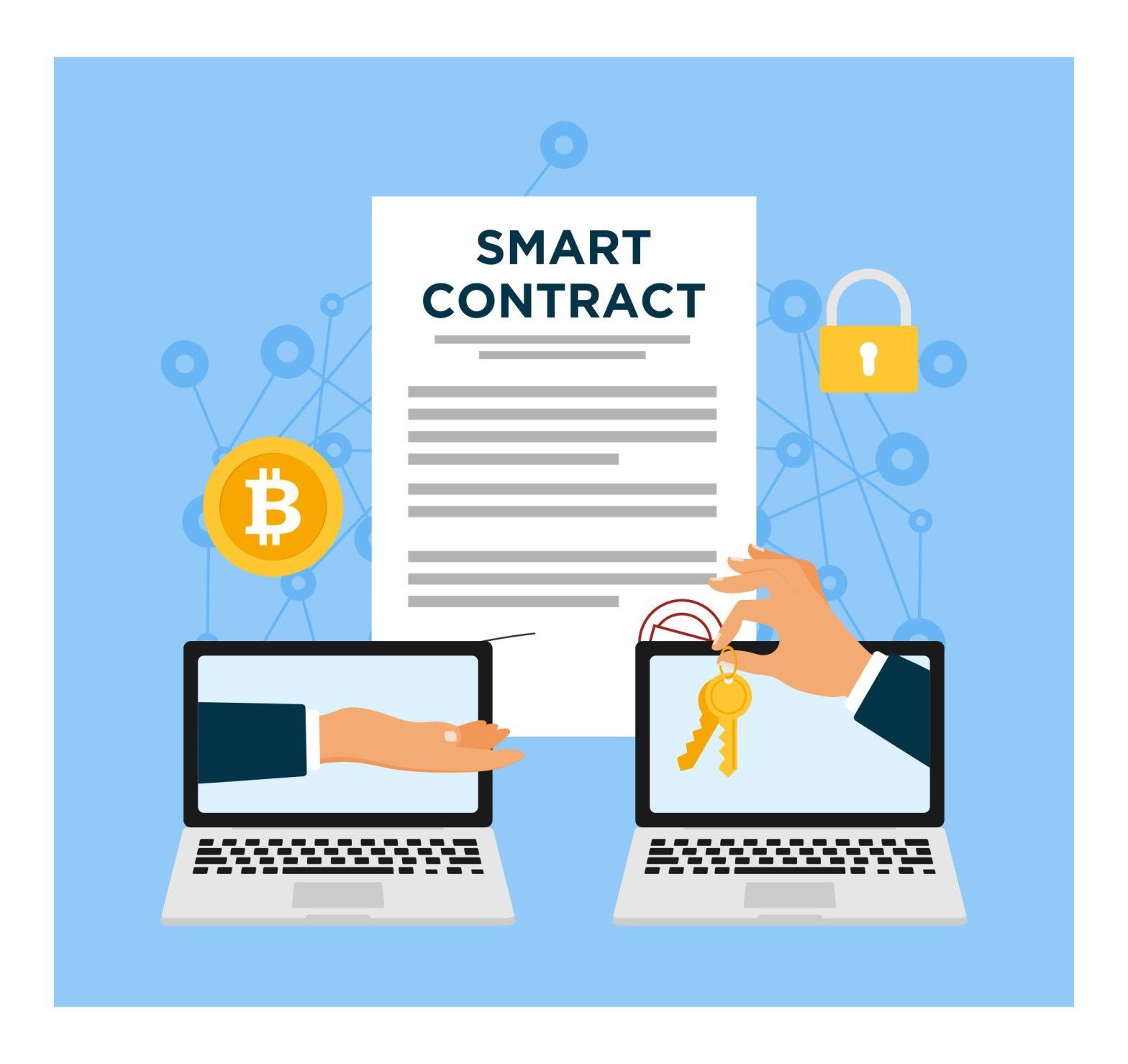Smart Contracts on blockchain are self-executing contracts that streamline and automate the operations and processes across various industries.
These self-regulating contracts enable faster, cheaper, and hassle-free transactions and are ‘smart’ in every possible way.
What is a Smart Contract?
Nick Szabo, an American computer scientist first coined the term ‘Smart contracts’ in 1994.
A smart contract is a computer protocol inside a Blockchain network that electronically allows, verifies, or enforces the negotiation or performance of a contract.
And, such blockchain-based contracts are self-executing.
So, the terms of the agreement and clauses between the parties are directly written into lines of code.
Hence, these contracts automate the terms of multi-party transactions without a middleman.
Therefore, a smart contract makes transactions transparent, error-free, and permanent.
Smart contracts are helpful in industries like real estate, financial services, supply chains, legal services, etc.
Smart Contracts and Vending Machines?
To explain Smart Contracts, the examples of Vending Machines are the most suitable.
A vending machine encrypts a pre-programmed set of rules for transactions. And, it allocates a cost price to each of its items according to the encrypted code.
Therefore, when someone inserts a coin, the machine checks whether they have inserted the correct amount for a particular product.
Hence, it dispenses the product directly when the code is fulfilled without any third party.
Similarly, blockchain-based smart contracts have a pre-programmed set of rules to automate agreements between parties.
So, the parties enter into a contract with mutual contract laws and clauses that are digitally entered codes in a blockchain.
And, when these set codes are fulfilled, the self-regulating smart contracts execute the transaction.
How does a Smart Contract work?
A smart contract is a protocol that runs on a blockchain database.
And, it contains a set of rules for the terms of the contracts and/or functional outcomes of the agreement between two or more parties.
Thus, the digital protocol completes the transaction when these rules are met.
The structure of a smart contract
1. IDENTIFY AGREEMENT Multiple parties select a collective opportunity and desired returns. So, potential agreements could include business processes, asset swaps, transferal of rights, and more. 2. SET CONDITIONS The parties themselves can create a smart contract when they satisfy certain conditions like financial market indices, natural disasters, or events via GPS location. Also, temporal conditions could begin a smart contract on holidays, birthdays, and religious events. 3. CODE THE BUSINESS LOGIC Then, a computer program is written in a way that the arrangement will automatically perform when the conditional parameters are met. 4. ENCRYPTION & BLOCKCHAIN TECHNOLOGY Meanwhile, encryption secures verification of messaging between the parties of the smart contract. 5. EXECUTION & PROCESSING In a blockchain, a smart contract is written to a block when consensus is reached on authentication and verification. After that, the code is executed, and the outcomes are memorialized for compliance and verified. 6. NETWORK UPDATES Consequently, after the performance of the smart contract, all computers in the network update their ledgers to reflect the new state. Hence, after its placement to a blockchain, it does not allow any change but addition only. |
Any transaction process starts with an offer from the first party. They create its terms and functional outcomes, the “if/when…then…” in the form of a statement. Then, they upload it as a computer code onto a blockchain.
And, the distributed nature of the blockchain allows all the parties to see the terms and outcomes.
Therefore, when both parties agree on the terms such as due date, price, and other conditions, the contract becomes immutable.
Furthermore, when each party approves the contract, the smart contract protocol immediately self-verify the terms by analyzing all the data in real-time.
On a trigger event such as due date, expiration date, product delivery, etc, the smart contract automatically transfers the assets to the necessary parties.
Components of Smart Contracts
Typically, a smart contract comprises the following core components:
1. Smart contract code:
Solidity code is the programming language for smart contracts. It links and relates multiple contracts directly to the base contract.
2. Automation
Automation allows smart contracts to verify functional outcomes. It also helps in immediately enforcing the agreement without any third party on the trigger event.
3. Decentralization
The distributed ledger technology (DLT) of smart contracts removes a single source of control. It creates a decentralized system, distributed among nodes of the platform.
Types of Smart Contracts
There are three types of smart contracts based on their uses:
1. Smart Legal Contracts
Smart legal contracts are legally enforceable.
Here the parties must fulfill their contractual commitments, otherwise, they face strict legal penalties against them.
2. Decentralized autonomous organizations
Decentralized Autonomous Organizations (DAO) are multiple blockchain communities that are combined with governance mechanisms.
Hence, a self-enforcing code replaces any action that a community member takes.
3. Application Logic Contracts
Such contracts contain an application-based code that works together with other blockchain contracts.
These multi-function smart contracts allow communication across different devices like combining Blockchain and the Internet of Things (IoT).
Benefits of Smart Contracts
1. Faster transactions
The presence of multiple intermediaries and manual paperwork drag a transaction on for a long time.
However, a smart contract uses software code to automate the task and transfer assets immediately without any middlemen.
2. Accurate
A Smart contract is a digitally written computer code that makes transactions and agreements error-free.
3. Cost-effective
Blockchain-based smart contracts use digital automation, machine consensus, and self-executing codes for transactions.
Hence, there are no middlemen charges. So, here transactions are cheaper than physical contracts.
4. Trustless
The distributed ledger of a blockchain smart contract allows all parties to access the encrypted records.
Furthermore, no party can change any information for their personal benefit.
Therefore, this creates a trustless environment, as there is no need to trust any third party to execute a transaction.
5. Secure
Records in a smart contract are encrypted and distributed among nodes. So, transactions get cryptographic protection making transactions secure and traceable.
The Lilypads Bottomline: Smart Contracts are the future of transactions
Hence, a Smart Contract is nothing but a self-executing mechanism that makes transactions hassle-free and cost-effective.
With their automation and low transaction risks, smart contracts can automate several industries and boost their revenue and productivity with higher efficiency.

